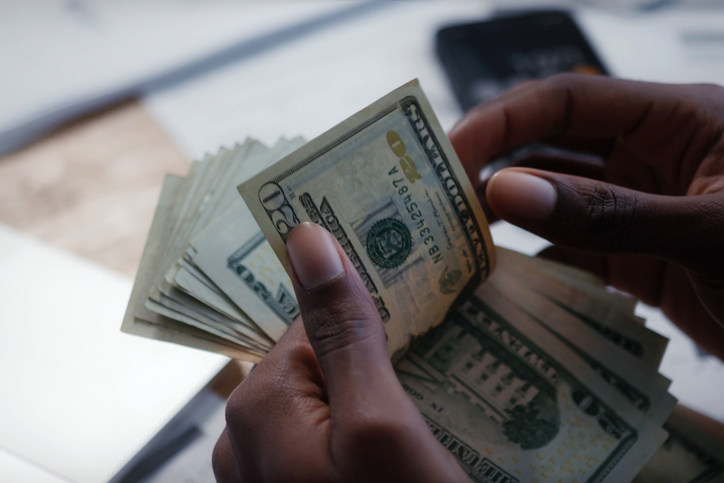Average American Burns Through 48% of Paychecks in 2 Days

It takes just two days for nearly half of the average American’s paycheck to disappear, according to new financial research that highlights how quickly workers’ money flows out of their accounts.
A Talker Research survey of 2,000 employed Americans found that within 48 hours of payday, 48% of earnings have already been spent. Within the first 12 hours alone, more than a third disappears. That leaves just 52% of each paycheck to cover the rest of the pay period—often stretching over two weeks or more.
This rapid spending isn’t about splurging or impulse buying. More than half of respondents said they immediately pay for groceries and basic necessities once they’re paid. Another 48% cover bills due within the week, while 42% pay major expenses like rent, mortgages, or credit cards. Around one in three handle smaller costs such as utilities or subscription services.
After that initial burst of payments, workers are left to manage the rest of the month with what remains. It’s no surprise, then, that only 28% prioritize saving money right away—most simply don’t have enough left over.
Younger Workers Hit Hardest
The study, commissioned by paycheck and payroll management company EarnIn, found that millennials see the sharpest early spending drop, burning through 40% of their pay within the first 12 hours. Many have adapted by carefully planning: nearly two in five millennials budget their spending before payday, and a third of Gen X workers time their bill payments to the exact moment their direct deposit arrives.
Despite this planning, more than one-third of all respondents admit to overspending in the days right after payday. Among younger generations, the issue is worse—52% of Gen Z and 45% of millennials struggle with post-payday overspending.
The cause isn’t reckless money habits. For 31% of overspenders, too many bills are due at the start of the month. Another 30% face overdue payments that can’t wait. When rent, credit cards, and car payments all come due within days, that 48-hour spending rush becomes unavoidable.
Gen Z faces extra pressures, too. One in five said they feel the urge to spend as soon as they get paid, while 18% admit they spend to keep up with friends who earn more.
A Costly Cycle for Young Workers
Most people are paid every two weeks, and nearly three-quarters say they feel stressed about their finances. In a typical month, 54% of Gen Z and 43% of millennials often feel short on cash, compared to just 18% of baby boomers.
The paycheck-to-paycheck pattern carries a financial cost. Over the past year, the average Gen Z worker spent $275 on overdraft and late fees. Baby boomers, by contrast, paid just $27.
EarnIn says this ten-to-one gap shows how outdated financial systems hit younger workers hardest. Gen Z isn’t less responsible with money, but they’re operating on tighter margins within systems that haven’t evolved to meet their needs.
When expenses arise mid-pay cycle but paychecks only come twice a month, workers can spiral into costly fees. A car repair might trigger an overdraft, which delays another payment, leading to even more fees. As a result, many end up paying hundreds of dollars a year just to access money they’ve already earned.
Could Getting Paid More Often Help?
Nearly half of those aware of early pay options have tried them through their employer. Millennials and Gen Z are the most likely to use this benefit—56% and 54% respectively have accessed their wages early when they could.
According to EarnIn, traditional lump-sum pay schedules leave people feeling briefly well-off but struggling later. Having more frequent access to earnings helps workers pace spending, stick to budgets, and handle surprise expenses without debt. Getting paid on their own terms isn’t just convenient—it gives them better financial control.
Bills don’t line up neatly with two-week pay cycles. Emergencies don’t wait for the next paycheck. And with younger generations facing student debt and rising living costs, the mismatch between bill timing and income has created a harsh new reality. For millions of Americans, the 48-hour paycheck countdown has become an unavoidable part of modern financial life.

















